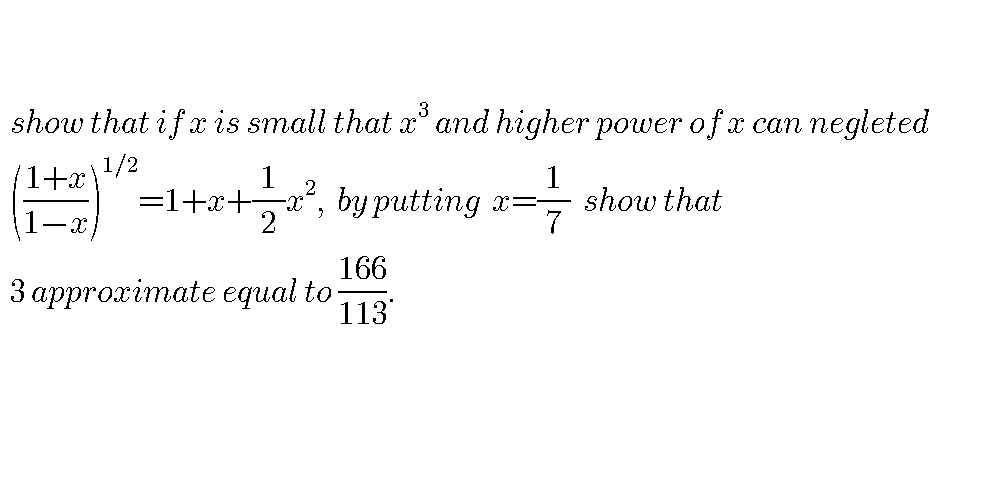
AllQuestion and Answers: Page 1688
Question Number 40186 Answers: 0 Comments: 0

Question Number 40185 Answers: 0 Comments: 0

Question Number 40176 Answers: 0 Comments: 0

Question Number 40173 Answers: 1 Comments: 1

Question Number 40945 Answers: 0 Comments: 0
Question Number 40170 Answers: 1 Comments: 3

Question Number 40161 Answers: 0 Comments: 0
Question Number 40160 Answers: 0 Comments: 1
Question Number 40159 Answers: 0 Comments: 1
Question Number 40158 Answers: 0 Comments: 3
Question Number 40157 Answers: 1 Comments: 1
Question Number 40156 Answers: 1 Comments: 1
Question Number 40155 Answers: 1 Comments: 1
Question Number 40154 Answers: 1 Comments: 1
Question Number 40153 Answers: 1 Comments: 1
Question Number 40152 Answers: 1 Comments: 1
Question Number 40151 Answers: 1 Comments: 1
Question Number 40150 Answers: 0 Comments: 1
Question Number 40149 Answers: 0 Comments: 1
Question Number 40148 Answers: 3 Comments: 0
Question Number 40147 Answers: 0 Comments: 2
Question Number 40146 Answers: 1 Comments: 1
Question Number 40145 Answers: 1 Comments: 1
Question Number 40144 Answers: 1 Comments: 0
Question Number 40143 Answers: 0 Comments: 1
Question Number 40141 Answers: 0 Comments: 1
Pg 1683 Pg 1684 Pg 1685 Pg 1686 Pg 1687 Pg 1688 Pg 1689 Pg 1690 Pg 1691 Pg 1692
